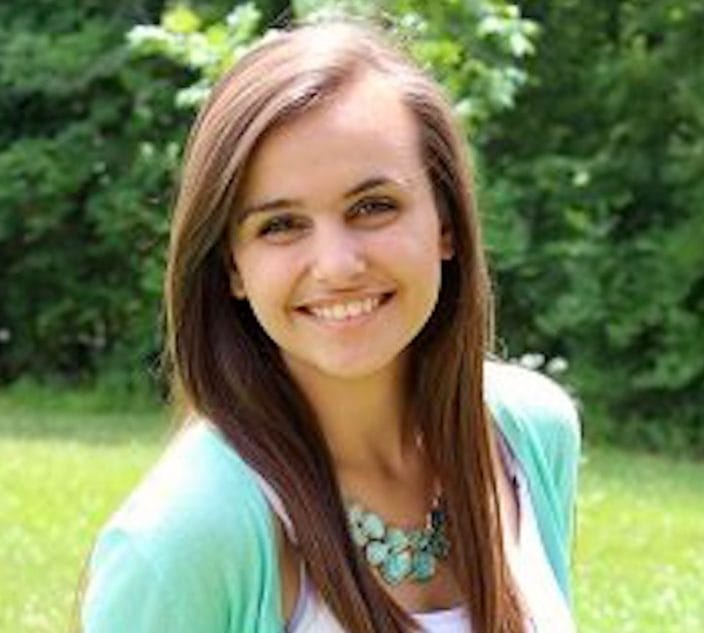
Governor Gavin Newsom has vetoed the bill that would have become California’s Elijah’s Law, designed to protect thousands of children with food allergies who are in daycare.
The surprise action on September 29, means more work is needed to make the daycare law a reality. The bill would require the state to develop an anaphylaxis policy that directs child-care centers on how to prevent and respond to anaphylaxis.
“It’s so disappointing. This bill affects people, it affects lives,” says Thomas Silvera. “I’m not letting this discourage me. It just adds fuel to the fire. It opens up more conversations.”
Silvera and Dina Hawthorne-Silvera founded the Elijah-Alavi Foundation (EAF) after their younger son died of severe anaphylaxis in 2017. Elijah’s Law is named for the 3-year-old, who was served a grilled cheese sandwich at his New York City preschool despite having a known dairy allergy. The daycare then failed to call 911.
In his letter the Elijah’s Law bill veto, Newsom did recognize the importance of protecting children at risk of anaphylaxis. But the governor said he couldn’t sign the bill, as written, stating that it would cause implementation issues.
EAF has been working alongside the Asthma and Allergy Foundation of America (AAFA) to bring Elijah’s Law to California. “The Asthma and Allergy Foundation of America is disappointed in Governor Newsom’s veto of the bill. But we are confident that Elijah’s Law can move forward in California,” said Jenna Riemenschneider, director of advocacy and special projects for AAFA.
“The Governor recognized the importance children’s safety in child-care settings and we stand with the Elijah-Alavi Foundation ready to address his implementation concerns,” she said.
California’s Governor’s Veto
Silvera does not view the governor’s veto on Elijah’s Law as a “no,” but rather as a “let’s work together.” The current bill cannot be re-introduced as it is. The plan is to update the bill’s language and try to heed the governor’s advice in his veto message. The hope is to introduce an updated bill to get it signed into law during the next legislative session, Silvera says.
The first steps are to determine how best to address the concerns that the governor raised. One sticking during negotiations concerned who would provide training. Silvera plans to meet with the California Department of Social Services (CDSS) and members of the Service Employees International Union (SEIU), which represents healthcare workers.
Newsom’s letter indicates that the CDSS and the Child Care Providers United-California (CCPU) would need to create two separate anaphylaxis policies – instead of one policy as outlined the bill – for child-care center staff and family child-care home staff.
California has a population of about 39 million. The state has nearly 37,000 licensed child-care facilities and 2.4 million children under the age of 5.
While acknowledging the importance of training for anaphylaxis, the governor wrote, “The bill before me creates a number of implementation concerns, including establishing multiple processes .…” Newsom closed his letter encouraging lawmakers to work with health and safety experts to find “a workable alternative that is uniform and addresses these issues.”
Silvera is hoping that CDSS and CCPU can come to a consensus to create policy. He plans to work with them on new language for the bill.
“My goal is to create change – to provide guidance and protection for children now and in the future,” Silvera says.
“We look forward to working with all stakeholders to streamline enactment of these critical, life-saving protections for children,” Riemenschneider says. She thanked community advocates for their continuing support. “AAFA and EAF will doubtless call on our California advocates again soon to ensure child-care facilities have anaphylaxis policies in place for emergencies,” she said.
California’s Bill for Elijah’s Law: What It Says

The California bill “addresses the three goals of Elijah’s Law: education, access, and equity,” Riemenschneider says.
Assemblymember Carlos Villapudua of Stockton sponsored the now-vetoed bill. When it comes to the young and medically vulnerable, he said: “it falls on us as leaders to establish a network of security that will set them up for success as best as possible.”
Under the bill AB-2042, which didn’t get signed, the CDSS and the State Department of Education would have been required to consult with medical experts and create an anaphylaxis policy by July 2024. Child-care facilities would be required to implement the policy’s guidelines by January 1, 2025.
The bill said a policy must include:
- A process for daycares to have at least one staff member trained and able to administer epinephrine during an anaphylactic reaction. A trained volunteer must be present during operating hours.
- Procotols and treatment plans to respond to a child suffering from anaphylaxis. This includes access to an undesignated stock of epinephrine auto-injector. California requires all K-12 schools to stock epinephrine auto-injectors. But the requirements don’t include child-care centers that work with children under age 5. The goal was to mirror what already exists in K-12 settings for child-care centers to make it as efficient as possible, says a spokesperson in Villapudua’s office.
- A training course that educates personnel on preventing, recognizing and responding to anaphylaxis.
- Guidelines for creating an individual emergency health-care plan for children with an allergy at each daycare.
- Strategies to reduce the risk of exposure to allergens.
- A communication plan for relaying information and discussing allergy strategies with children and their parents.
Elijah’s Law Compromises and Support
Silvera stresses the importance of mandatory training – not just how to use an auto-injector, but also how to prevent and recognize a reaction. “Training is so important. When education is not there, a lot falls through the cracks.”
Even before the veto, Silvera said the work on the legislation in California had not been easy. He participated in meetings with various groups almost weekly since the bill was introduced in February 2022. The input from stakeholders sometimes strayed from the bill’s focus on child safety. So it was imperative to keep providing a better understanding of each aspect of the bill, and the emphasis on food allergy safety protocols.
Before the governor vetoed the bill, the legislation had passed with unanimous support in the state Assembly.
“The bipartisan support this received from the legislature acknowledges the need we have in California to close these remaining gaps, so that every parent and child can feel safe knowing that the care they need is here during their most vulnerable times,” Villapudua told Allergic Living.
Elijah’s Law: Pushing Into More States
By lobbying for California and other states to adopt Elijah’s Law, the Silveras hope to prepare daycares to manage food allergies, and to prevent another family from experiencing an anaphylaxis tragedy. In 2019, New York became the first state to enact such a law, and Illinois and Virginia have also passed Elijah’s Laws.
“For us, it always goes back to the children. Babies and children under 5 cannot advocate for themselves,” says Dina Hawthorne-Silvera.
Efforts to pass Elijah’s Law throughout the United States continues. Silvera says they plan to re-introduce a House bill in Pennsylvania this fall. They are working on a bill in the Michigan Senate (SB 1083); and plan to introduce a bill in Connecticut, he says.
AAFA and EAF have been in discussion with the chapters AAFA Alaska, AAFA New England and AFAA St. Louis to introduce similar bills in the states they represent.
AAFA also undertook a report that includes a state-by-state assessment of food allergy policies at child-care centers. It finds 27 of 50 states scored 4 or less out of a potential 9. The report also includes an advocacy toolkit to assist would-be advocates in lobbying for an Elijah’s Law in their states. It includes tips for contacting legislators, a sample letter, and sample bill language.
Related Reading:
Visit Elijah-Alavi Foundation
The Changemakers: Working Tirelessly for Those with Food Allergies





